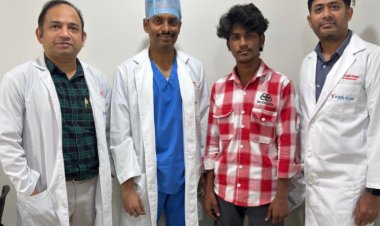Focus on adverse events of medical devices

After several horrific cases of malfunctioning medical devices, like babies being burnt to death due to short circuits in incubators or hip implants causing blood poisoning, the Ministry of Health and Family Welfare (MoHFW), Govternment of India (GoI) has approved Materiovigilance Programme of India (MvPI) in an effort to ensure safety of medical devices. In addition to protection of health and safety of patients,
Materiovigilance program reduces the likelihood of reoccurrence of the harmful incidents elsewhere thereby improving quality of health products. This programme is meant to analyze the benefit-risk ratio of medical devices) and create awareness among healthcare professionals about the importance of MDAE reporting in India. It helps to generate India specific evidence based information on safety of medical devices so that regulatory decisions and recommendations on safe use of medical devices for India could be based on data generated in India.
This programme is unique in the sense that it requires inputs in biomedical engineering unlike in medicines where the mechanism is different for reporting of adverse drug reaction (ADR) reporting.
Under MvPI clinician, biomedical engineers, clinical engineers, hospital technology manager, pharmacists, nurses, technicians can report medical device adverse events. Medical device manufacturers/CDSCO notified medical device manufacturers/ medical device importertrader can also report adverse events specific for their product to National Collaboration Center i.e. SCTIMST, Thiruvananthapuram.
The reporting form called as Medical Device Adverse Event reporting form (MDAE) will help generate independent, evidence-based recommendations on the safety of medical devices and to communicate the findings to all key stakeholders. The reporting form includes adverse event details, severity of the event, date, location, device category, model of the device available with the organization, its use after the event, name of medical device, manufacturer, brand name, model number, serial number, batch number, catalogue number for instruments, date of installation/implantation/ explanation and list of accessories among other relevant details like actions taken immediately after the incident/event.
Currently there are around 250 adverse drug reaction monitoring centres (AMCs) in the country.
Medical colleges, hospitals and institutes approved by the Medical Council of India (MCI) can act as AMCs. Once enrolled they are required to efficiently collect the adverse event information from the patients, do follow up with them to check the completeness of the ADR reports. MvPI is also planning to expand the Materiovigilance programme to all hospitals (Govt & private) and centres of public health programmes located across India and make materiovigilance reporting mandatory for medical-device manufacturers and healthcare providers.

 Disclaimer: Welthi.com does not guarantee any specific results as a result of the procedures mentioned here, and the results may vary from person to person.
Disclaimer: Welthi.com does not guarantee any specific results as a result of the procedures mentioned here, and the results may vary from person to person.









